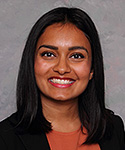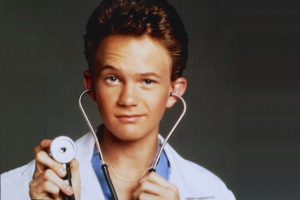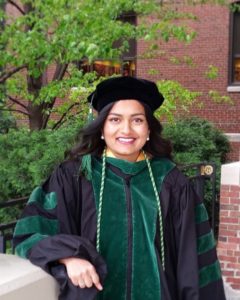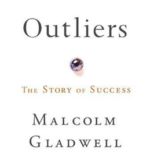September 17th, 2020
What’s in a Number?
Sneha Shah, MD
Does your doctor’s age matter?
If I had $100 for every time I walked into a patient’s room, introduced myself as the doctor, and was immediately asked, “Hey, how old are you?” I might be able to retire right now — at the age of 28. Of course, I am exaggerating, and yet this question echoes for me and my baby-faced colleagues constantly.
Whether it’s simple curiosity or blatant reverse-ageism, I find this question erodes trust before it is built. I haven’t yet found an agreeable way to bypass it; I usually just state my age, before quickly moving on. Rarely, some congratulate me on my accomplishments given “such a young age.” But these felicitations are like writing in the sand, which quickly wash away in the waves of emotions I begin to feel the moment they ask me that question.
Why this question hits too close to home
Even though I am the oldest child in my extended family, my traditional Indian (specifically Gujarati) family considers me to be a kid. I keep hitting milestones — 16 to start driving, 18 to start voting, 21 to drink alcohol, 25 to rent a car — but I am still seated at the kids’ table at home. During holidays or celebrations, I often feel left out. Too old to play with the kids and too young to gain entry into adult conversations. I attempt to walk up to a group of aunties and uncles hunched over in a hushed conversation — abridging their conversation, they turn toward me and ask, “Aren’t you getting too old to not be married?” So, I am officially too young and too old at the same time.
I commiserate being in age-limbo with my brother, who shares similar sentiments. Nonetheless, there is a deep hurt that comes with never feeling trustworthy enough to hear family secrets. And, as I learned on my psychiatry rotation as a third-year student, I am using the mature coping mechanism of suppression to hide that hurt.
Similarly, I start to feel untrustworthy during patient encounters where my age is brought up — no matter how knowledgeably or confidently I began that interaction.
When your competency is questioned
As new physicians, we are required to start making decisions and to start practicing medicine. Even residents who haven’t had my cultural experiences know the feeling of doubting oneself for even minor decisions. We hold the precious privilege of caring for someone’s life, and mistakes can be grave. Knowing this, we double and triple check our work. Despite this, patients and colleagues continue to question us. When we are interns, they want the opinions of our seniors. When we are seniors, they want the opinions of our attendings. Even as an attending (my first time as a chief resident), a patient’s wife asked whether there was “someone above me” who could confirm my clinical judgment.
Unlike our patients, members of our interdisciplinary team might not blatantly ask our age, but there are undercurrents of skepticism. For example, nurses will look surreptitiously toward the critical care fellow lurking behind the senior resident who is running a code before acting on the resident’s requests. Pharmacists will congratulate interns for finally placing that antibiotic order correctly. We fall victim to the experienced physicians’ “back in my day” comments.
How we can grow together
There are times when I simply want to reference this article (BMJ 2017 May 16; 357:j1797) about physician age and patient outcomes — no difference! But, I choose to remember that 3 years of residency barely surpasses the 10,000-hour rule popularized by Malcolm Gladwell. And I am thankful for the talented and experienced healthcare providers that surround me. Countless times, an ICU nurse has whispered in my ear about which pressor to start. Pharmacists have alerted me on near-misses and helped me write the correct medication order. Nurse care managers took the time to explain the difference between Medicaid and Medicare. And, experienced physicians have taught me how to hold a patient’s hand and be a guide through the toughest time in his or her life. But, currently, we lack robust evidence about how physician age affects patient outcomes. Thus, we, “young physicians,” will continue to double-check our work, and those around us will wonder if we have done so.
Illuminating the lengthy path it takes to become a physician, a colleague jokingly replies, when asked the age question,
“Let’s see… 4 years of college, 4 years of medical school, and 3 years of residency, so I’m at least 11 years old.”
I pose the following question for our readers: How often, when boarding a plane, do we demand that the cockpit doors be opened so we can inquire about the pilots’ age? We don’t. We trust that they have enough knowledge and experience to competently fly hundreds of people to their destination. Isn’t it time we afford the same trust to all of our physicians, regardless of their age?







So well written, Sneha! I appreciate you being so vulnerable and sharing the story about your family. I was also the oldest in my extended family and family friends, and definitely can relate to not fitting in at either table. My response to “How old are you?” is usually, “Still young, but older than you think!” Stay strong and confident! Patients are lucky to have such an empathetic physician, regardless of her age!
Thank you, Stephanie. I aim to write material to which many can relate.
Interesting post. Although I’ve never asked an MD their age, I appreciate being sensitized to the issue. On the other hand, I have asked MDs where they trained, I’ve checked credentials and disciplinary records and, as a former hospital administrator, I’ve used my connections to ‘check’ professional opinions regarding physicians I’ve been referred too. The reality is that most of us who work in health care are quickly indoctrinated, rightly or wrongly, to believe not all physicians are created equal.. As a surgeon once said to me about another surgeon, “He does a lot of cutting but he is no surgeon!” Or, as another said when I contemplated surgery at a well regarded academic centre, “if you have your surgery here you know who is going to do it; if you go there you may think so and so is doing it but it turns out a resident does it.” There is no doubt that physician age, young or old, can spark incredulity at times. In the case of young physicians the experience may be more insulting but, I suspect, it is often more innocent despite being inappropriate. My advice about responding to that question…smile or laugh and say, “Why do you ask?” If the patient’s question is rooted in doubt about you then it is better to know that and deal with the real issue. But expect different variants of this question over your career. We have done an excellent job of commodifying medicine and people are picky about the commodities they purchase.
Thank you for your thoughtful comment. I especially like the insight regarding commodifying medicine and how that has changed the practice in large ways.
This article was mostly written from an Internal Medicine perspective, I think surgical fields are slightly different. But, that’s why they have longer residencies — the tactical skills are repeated many times before independent practice.
Finally, while it’s certainly true that not all physicians are created equal…at least, most of us in training are routinely evaluated and allowed only to practice that which the program feels comfortable letting us. There are remediation and other strategies in place for those who may require additional help.
“Old enough that it’s a compliment” with a laugh, when patients say “you look so young, how old are you?”
Thanks for reading, Lauren!
Don’t worry, Dr. Shah. The time from “Are you old enough to be a doctor?” to “I hope you don’t retire on me and I have to find another doctor” is astonishingly short.
Thanks for reading Dr. Wilk! And oh boy…hoping for an exciting career in-between the two.
To Dr. Shah,
The question ” how old are you?” may not be what it seems. As a 68 year old doctor, I often see younger physicians, especially new graduates, and think , “How OLD are they?!!” when I am really thinking how old am I? and that the years pass so quickly.
Dr. Demas, thanks for reading and commenting. Looking forward to what the years bring and trying to cherish even the very difficult moments. Residency went by so quickly and I can only imagine how practice years go by even faster.
Will try to slow down and smell the roses as they say.
Wow- as a physician who was asked exactly the same question 20 yrs ago, I interpreted it as compliment. I heard “such a wonderful accomplishment for your age, which boosted my confidence and sense of appreciation. Perhaps what you are really sensitive to is your own internal emotional issue. While this is critical to work through, it should never be projected on to the patient who you are here to serve. Your response should always be what helps the patient most as emotions issues are for you to work out outside of the clinic. Good luck! Further emotional Maturity and a few more years of practice will help. For now your patients will not suffer from your young age or youthful appearance as you seem to.
Thanks for commenting!
It is natural for different physicians to have different responses to the age comment. I included some of my family background allow readers’ insight into why I react the way I do.
Physicians (who are only human) harbor many implicit biases and taking a moment to recognize them, set them aside, and treat each patient to the best of one’s ability is certainly the goal. I appreciate you vocalizing that. I think physicians my age can be incredibly mature – one reason I wrote the article is because many don’t think so (perhaps including you based on your comment).
Sneha, this post hits close to home, and I appreciate the additional emotional response this question brings up for you. When I get this question, I’ve tended to laugh it off, ask patients to guess, and then I share some of the more outrageous guesses. “Can you believe one patient thought I was 17???”
Although it allows us to move forward in a lighthearted way, it’s hard to not feel like one’s competency is also being implicitly questioned before you even get a chance to prove yourself. Interestingly, I’ve not heard this question in the past few years…perhaps I am aging?!
The older I get the younger everyone else looks